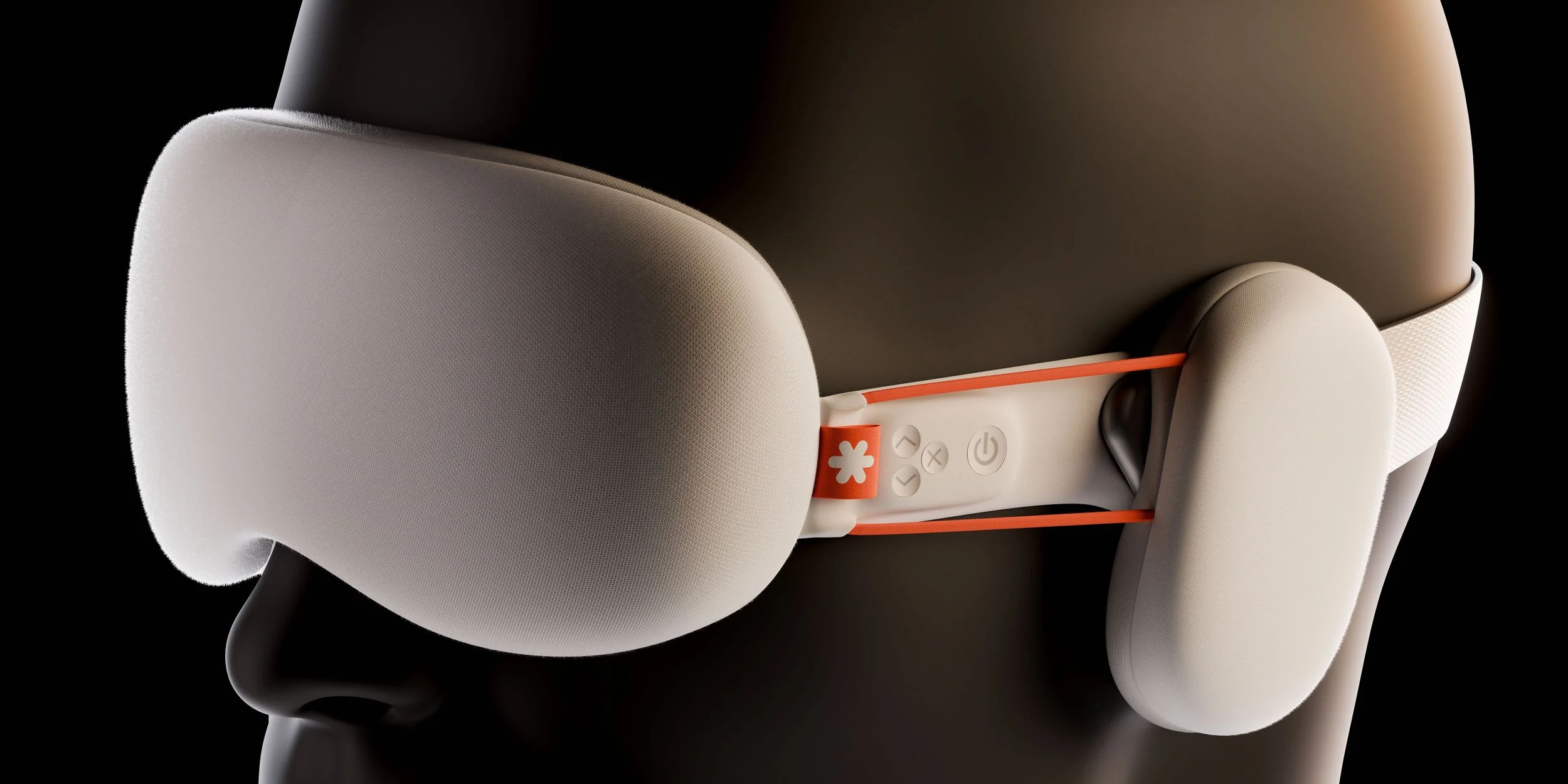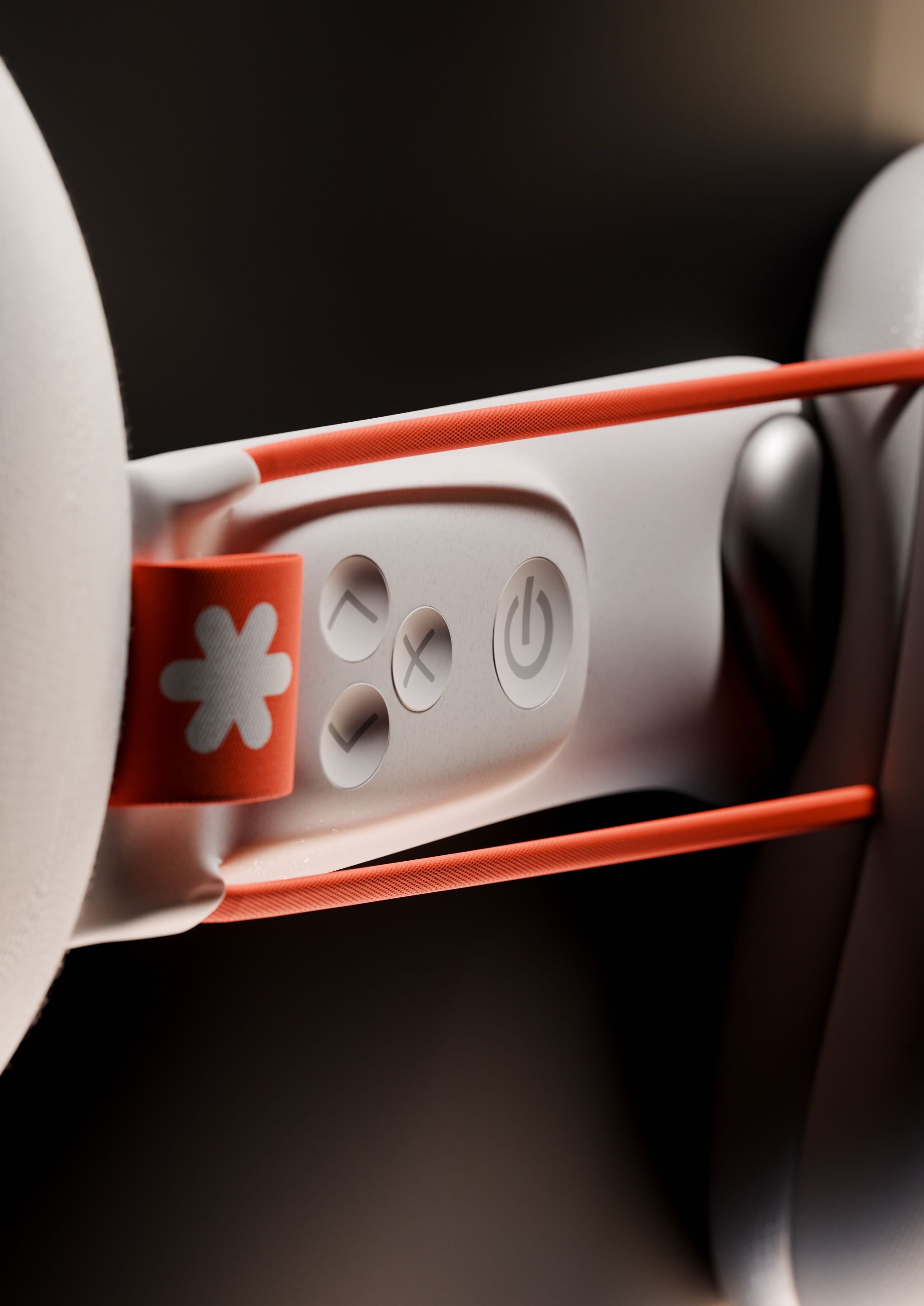
A sleep mask designed specifically for patients who need to sleep in busy hospital environments.
‘Personal Peace‘
What is this for?
Hospitals can have hectic times of the day, which can commonly be late at night. With healing patients struggling to sleep, especially the elderly, this can cause extra stress in an already unfamiliar environment.
Insomnia
While hospitals can provide medication for this issue, prolonged stays or medical complications may render this solution insufficient for some patients.
Loud Enviorments
Hospitals can be very loud places, with 67 dBs being common during the day and 35 dBs at night, as measured in the UK.
Common Irritations
Doors, intercoms, pagers, medical equipment, staff conversations, and other patients can all be sources of irritation, making sleep in this environment a true challenge.
Elderly Patients
Restless leg syndrome is a disorder that affects sleep and is often caused by remaining in a hospital bed for long periods. This can exacerbate the difficulties the patient experiences while trying to sleep.
How it works.
The Personal Peace sleep aid is a combination of earmuff, eyemask and bone conduction technology with the head piece being given to the patient to provide a calm and peaceful nigh’s sleep.
Why bone condution?
Research has shown that while headphones are effective at cancelling out distractions, they can be uncomfortable to sleep in because the earpieces may press against the head while resting. In contrast, bone conduction headphones offer impressive audio quality by vibrating the bones in the user's skull, which is then perceived by the ear. Combining this technology with an eye mask to block out light and earmuffs for sound can provide individuals with the personal peace they need in an otherwise busy environment.
Our brief.
Design a product or system that improves sleep for adults suffering from insomnia. Consider creating an ecosystem of multiple products to facilitate better sleep. This should include using sensory responses to evaluate a wide range of factors outside the bedroom that may impact sleep, such as diet and mental health.
The research behind it.
The sleep aid is provided to patients, especially elderly individuals and younger children, who are at high risk of experiencing negative effects from heightened stress during long and important hospital visits. Personal Peace helps them sleep while in the hospital, as 36% of adults in the UK struggle with sleep on a weekly basis, and the average adult gets only 6 hours of sleep each day. These statistics indicate that sleep deprivation is becoming a more pressing issue that hospitals will need to address in the years to come.
Initial Concept.
The original project was a university design sprint held in 2021. During this sprint, our team developed the concept for a sleep aid device. We presented our idea to the rest of the cohort, and it was recognised as the most nuanced approach to enhancing recovery.





